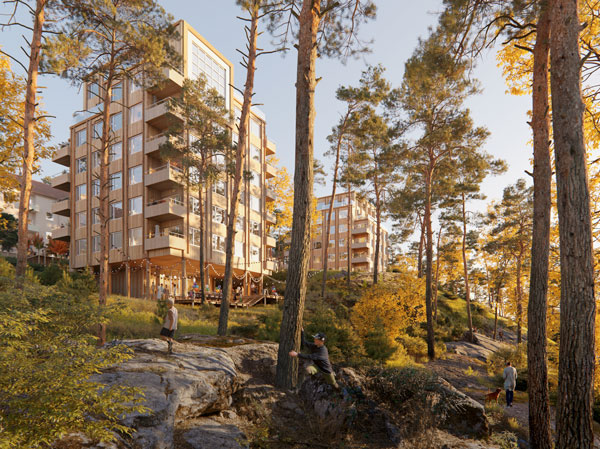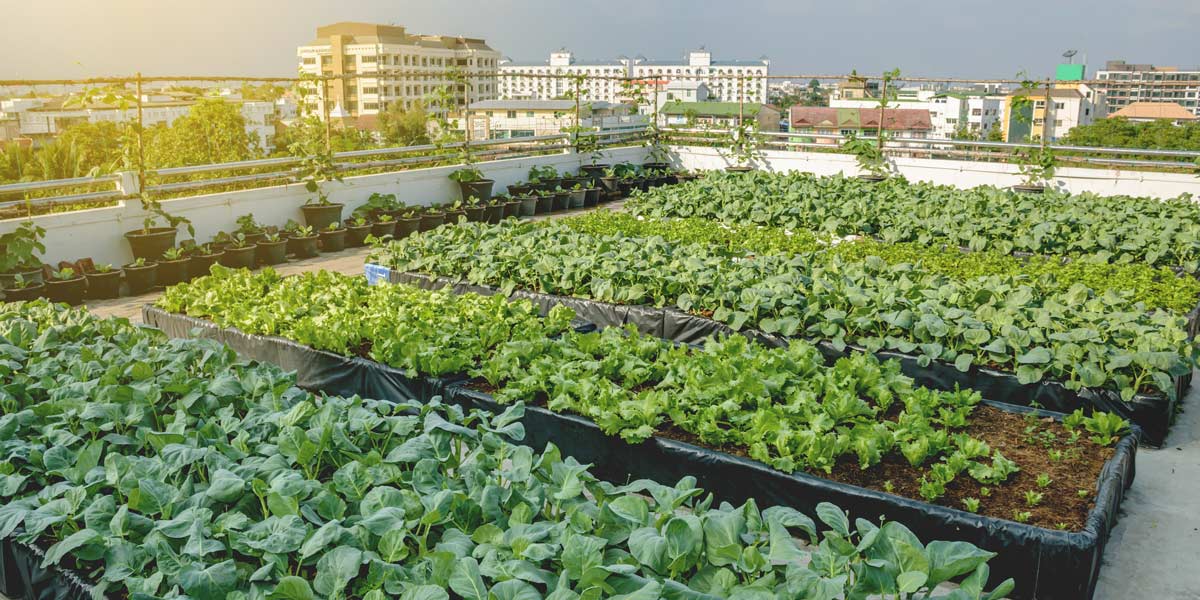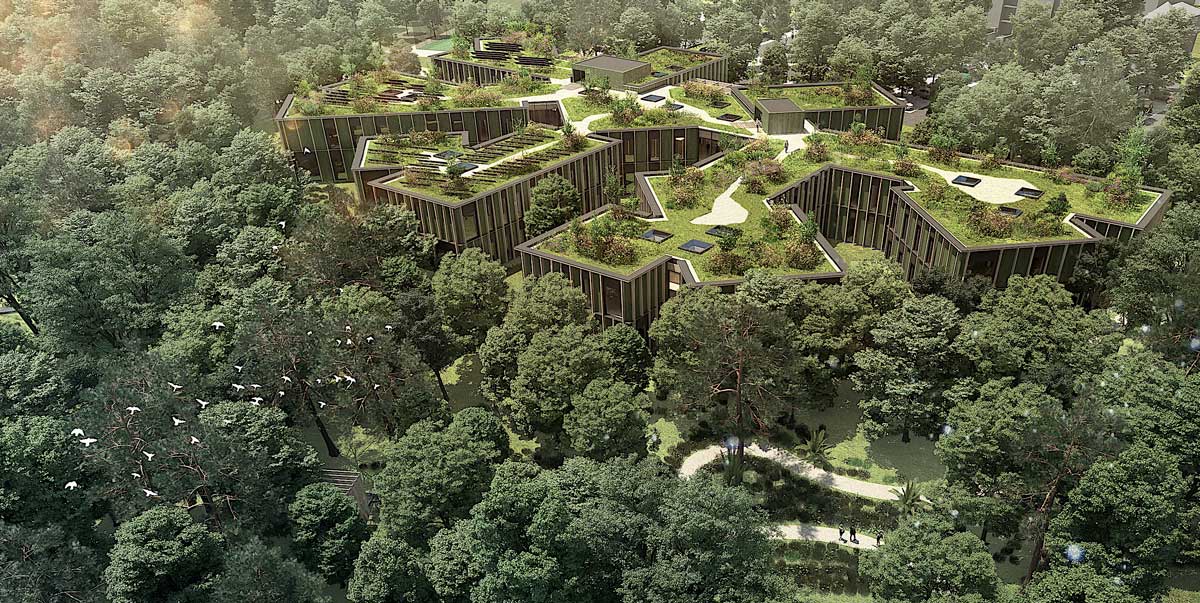Biocities Facility
EFI’s new Biocities Facility in Rome, Italy, is a global reference in generating and communicating relevant scientific knowledge on the potential of the circular bioeconomy concept to rethink urban areas, particularly based on forest-based solutions.
The Facility is a leader in developing a new and holistic conceptual framework for the use of green infrastructures and biobased solutions in urban environments, to tackle climate change and other global challenges.
Increasingly relevant “urban” sectors and challenges such as building construction (e.g., the New European Bauhaus initiative), fashion, transport, packaging, waste and human health and wellbeing directly benefit from the knowledge and activities generated.


Find out more on our work, our projects and inspiration from best cases all over the world.
Our work
The Biocities Facility addresses the following priority topic:
- Circular Biocities: from a concept to the new urban reality
The Facility implements the following key activities:
- Science-policy-business reports to connect the dots between disciplines and sectors that can catalyse transformational change in urban environments.
- Science-policy-business events and to raise awareness and create a new and informed debate on Circular Biocities around key sectors.
- A range of raising awareness communication activities engaging journalists, using different communication platforms and tools: from blogs, exhibitions, awards, etc.
Recommended reading
van der Bosch et al. 2024. The evolution and future of research on Nature-based Solutions to address societal challenges. https://doi.org/10.1038/s43247-024-01308-8
Scarascia-Mugnozza et al. 2023. Transforming Biocities: Designing Urban Spaces Inspired by Nature. https://doi.org/10.1007/978-3-031-29466-2
Wilkes-Allemann et al. 2022. Research Agenda – Biocities of the future. https://doi.org/10.36333/rs4 or you can also download a briefing of the Research agenda.
Pathways for transition to Biocities
Antoniella et al. 2024. Do poplar plantations enhance organic carbon stocks in arable soils? A comprehensive study from Northern Italy. Journal of Environmental Management, 370, 122882. https://doi.org/10.1016/j.jenvman.2024.122882
De Carolis et al. 2024 First insights of cotton intercropping with peach trees under Mediterranean conditions. Agroforesty Systems. https://doi.org/10.1007/s10457-024-01084-6
Chiti et al. 2024. How can carbon farming in forests contribute to carbon neutrality? Policy Brief 10. European Forest Institute. https://doi.org/10.36333/pb10
Chiti et al. 2024. Come può il carbon farming nel settore forestale contribuire alla neutralità carbonica? Policy Brief 10. Istituto Forestale Europeo. https://doi.org/10.36333/pb10it
Garofalo et al. 2024. Explainable Artificial Intelligence to Predict the Water Status of Cotton (Gossypium hirsutum L., 1763) from Sentinel-2 Images in the Mediterranean Area. Plants, 13(23), 3325. https://doi.org/10.3390/plants13233325
Events
Webinar - Mediterranean stone pines under attack: the invasion of the pine tortoise scale
2 May 2024 (14:00 - 16.00 CEST)
BIOCITTÀ, FORESTE URBANE E SALUTE DEI CITTADINI 25 October 2024, 10:30 AM.
Carbon Farming per le foreste europee e italiane 19.11.2024
Bioeconomia forestale e filiera del legno: opportunità e sfide, 26.11.2024
Festival del Verde e del Paesaggio 5.4.2025, with Matilda van den Bosch addressing the impact of urban nature on human health. View programme here (in Italian).
Sustainable Fashion: from innovation and research to the catwalk, 16.4.2025, co-organized together with CNR, CREA, Beste and Armani. See poster here.
Registrazione del convegno “Moda&Ricerca: La moda italiana che verrà”, Prato, 16 aprile 2025
Press releases
First tangible results of the Apulia Regenerative Cotton Project (7 November 2025)
Related publications:
- The pine forests of Rome: an ecosystem and a scenic beauty under threat
- Foreste urbane e pinete nella città metropolitana di Roma
- Mapping Coverage and Typology Based on Function and Spatial Configuration of Forests in Latium Region, Central Italy
- Homegarden agroforestry practices and their effect on income diversification in Dello Mena and Harena Buluk districts, southeastern Ethiopia
First image: Courtesy of Fritzell & Pantzar/Folkhem trä/Land arkitektur/HISM
Second image: Courtesy of CHYBIK + KRISTOF Architects, Forestry in the forest



